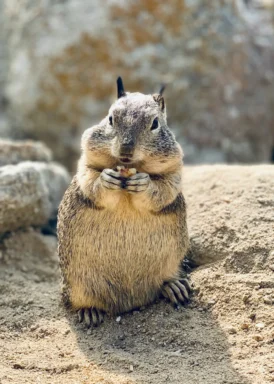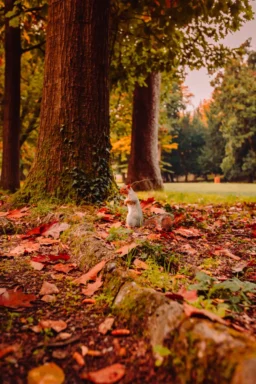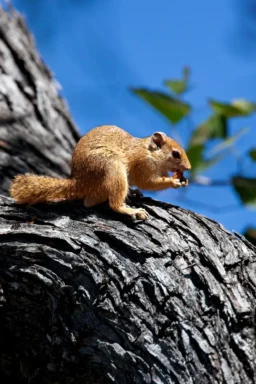Primarily, squirrels are known for their love of nuts, yet their dietary spectrum is broad, encompassing a variety of foods including seeds, fruits, fungi, and at times, insects and small avian creatures.
Among the bustling life in our backyards and local parks, squirrels are a common sight. Their agile nature and curious behavior are captivating, but what truly sustains these energetic creatures? Delving into what squirrels eat sheds light on their survival, adaptation, and the crucial role they play in the ecosystem.
Key Takeaways
- Squirrels exhibit a diversified dietary habit, with a strong inclination towards plant-based foods, yet not shying away from animal matter when necessary.
- The seasonal variation significantly influences their food choices, ensuring their survival during harsh conditions.
- Understanding the dietary habits of squirrels provides a lens through which one can gauge the health of the ecosystem they inhabit.
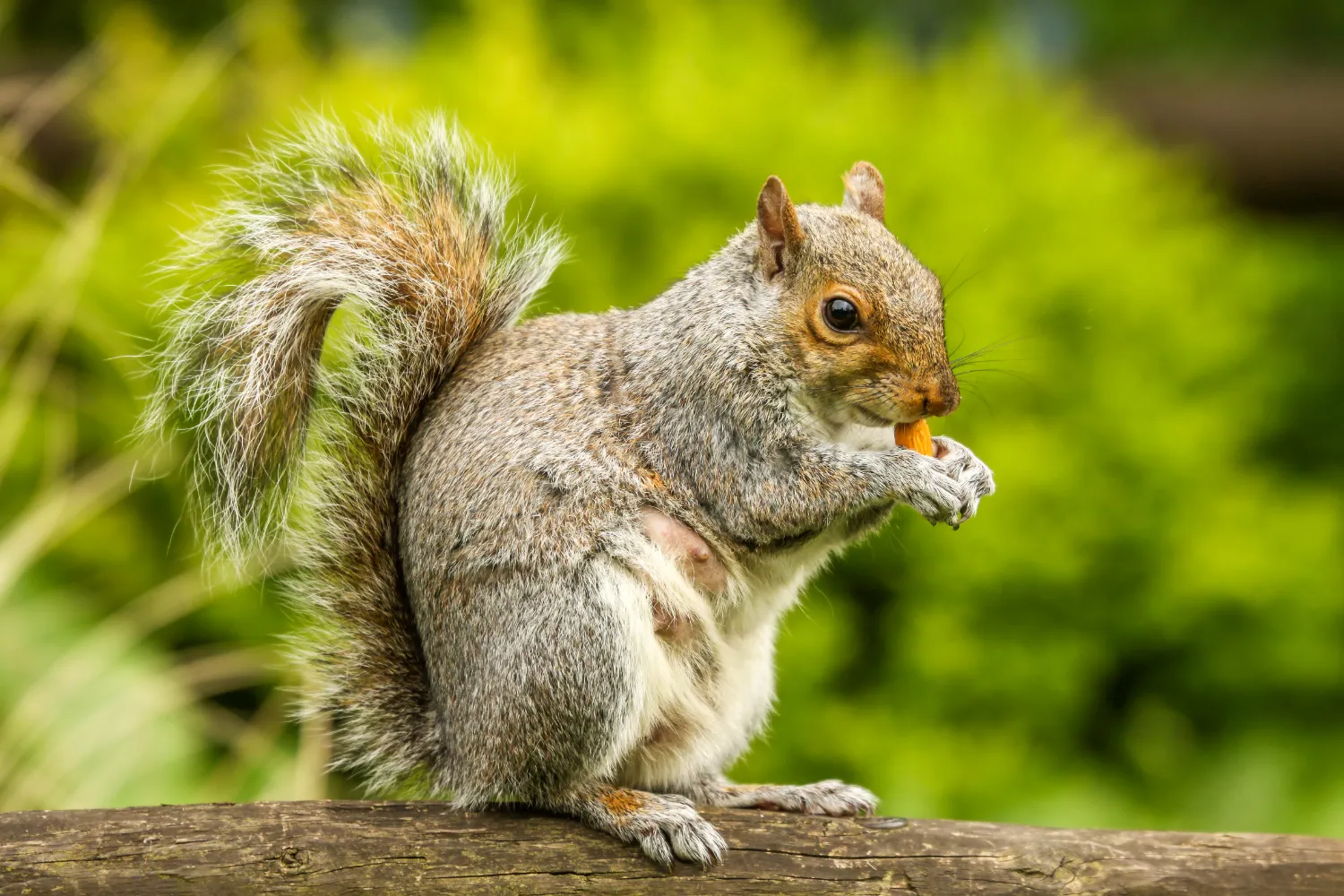
The Plant-Based Palette: Squirrels and Vegetation
The love affair between squirrels and plant-based foods is profound. From the rustle of leaves as they forage for acorns, to the sight of them nibbling on fruits, their plant-based diet is a spectacle of nature's harmony.
Nuts and Seeds:
- Favorites include acorns, walnuts, and pine nuts among others.
- Essential for their fat and protein requirements.
| Type of Nut/Seed | Nutritional Value |
|---|---|
| Acorns | Rich in fats and proteins |
| Walnuts | High in omega-3 fatty acids |
| Pine nuts | Good source of vitamins and minerals |
Fruits and Berries
- Seasonal fruits like apples and berries are consumed.
- Provide necessary vitamins and sugars.
The Omnivorous Aspect: When Squirrels Opt for Animal Matter
The omnivorous nature of squirrels, although not predominant, is an adaptive trait that unveils itself especially when plant-based foods are scarce. The consumption of insects, bird eggs, and even small mammals delineates the flexibility in their dietary regime, ensuring survival during lean times.
Insects and Small Birds:
- Opportunistic consumption especially during spring and summer.
Bird Eggs
- A source of protein, consumed when stumbled upon.
Seasonal Adaptability: The Dietary Shift
The changing seasons usher in a shift in the dietary preferences of squirrels. This adaptability is a testament to their resilience and a fascinating aspect of their survival strategy.
Spring and Summer:
-
- A bounty of fresh fruits, seeds, and the occasional insect forms the diet.
Autumn and Winter:
- The focus shifts to stored nuts and seeds, ensuring sustenance during the colder months.
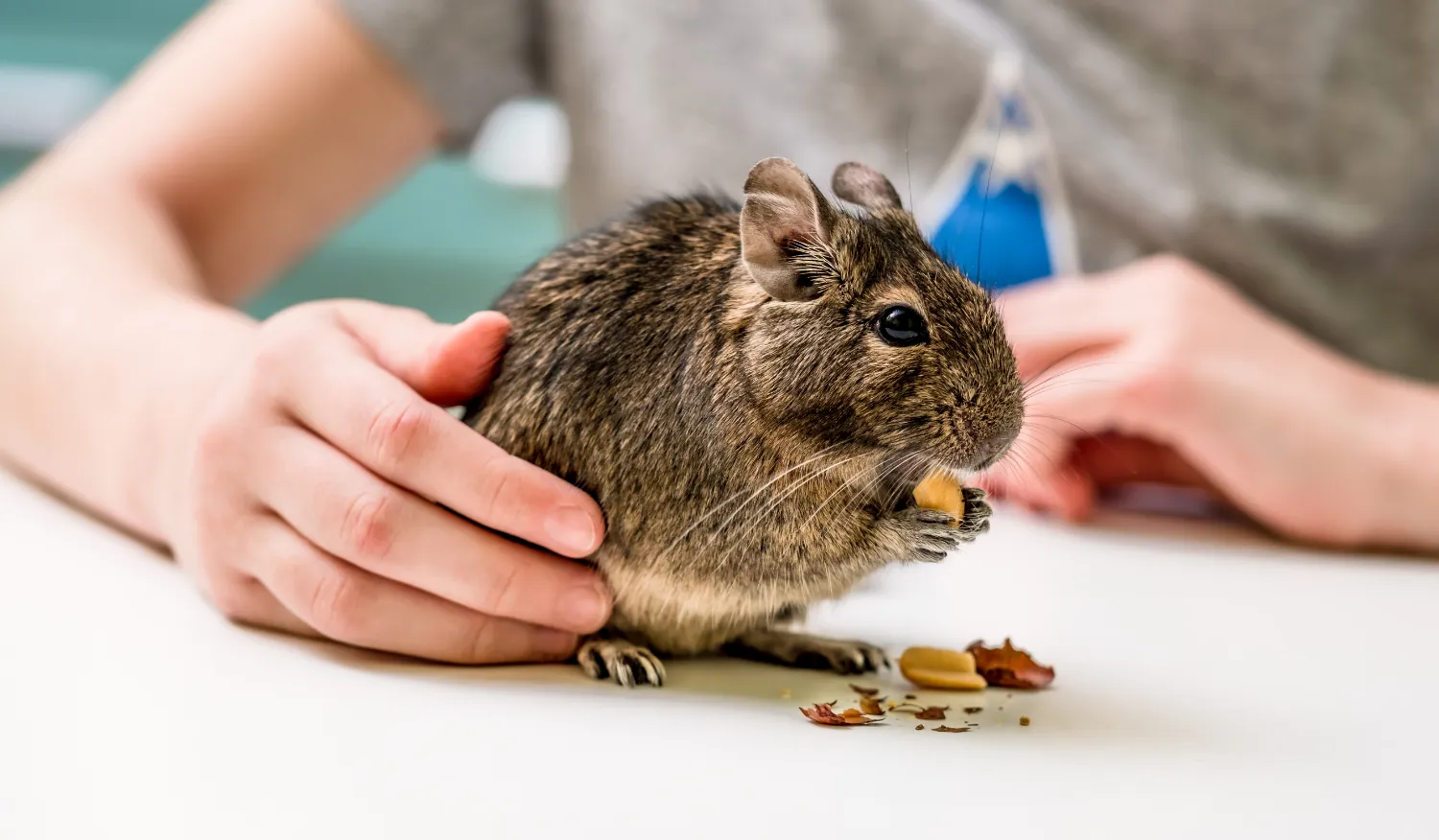
Human Interaction: Supplementary Feeding and Its Effects
The interaction between humans and squirrels often transcends beyond mere observation. Supplementary feeding, although done with good intent, can have implications on the dietary balance and natural foraging behaviors of squirrels.
Effects of Supplementary Feeding:
- Leads to an over-reliance on human-provided food.
- Disrupts natural foraging behaviors and dietary balance.
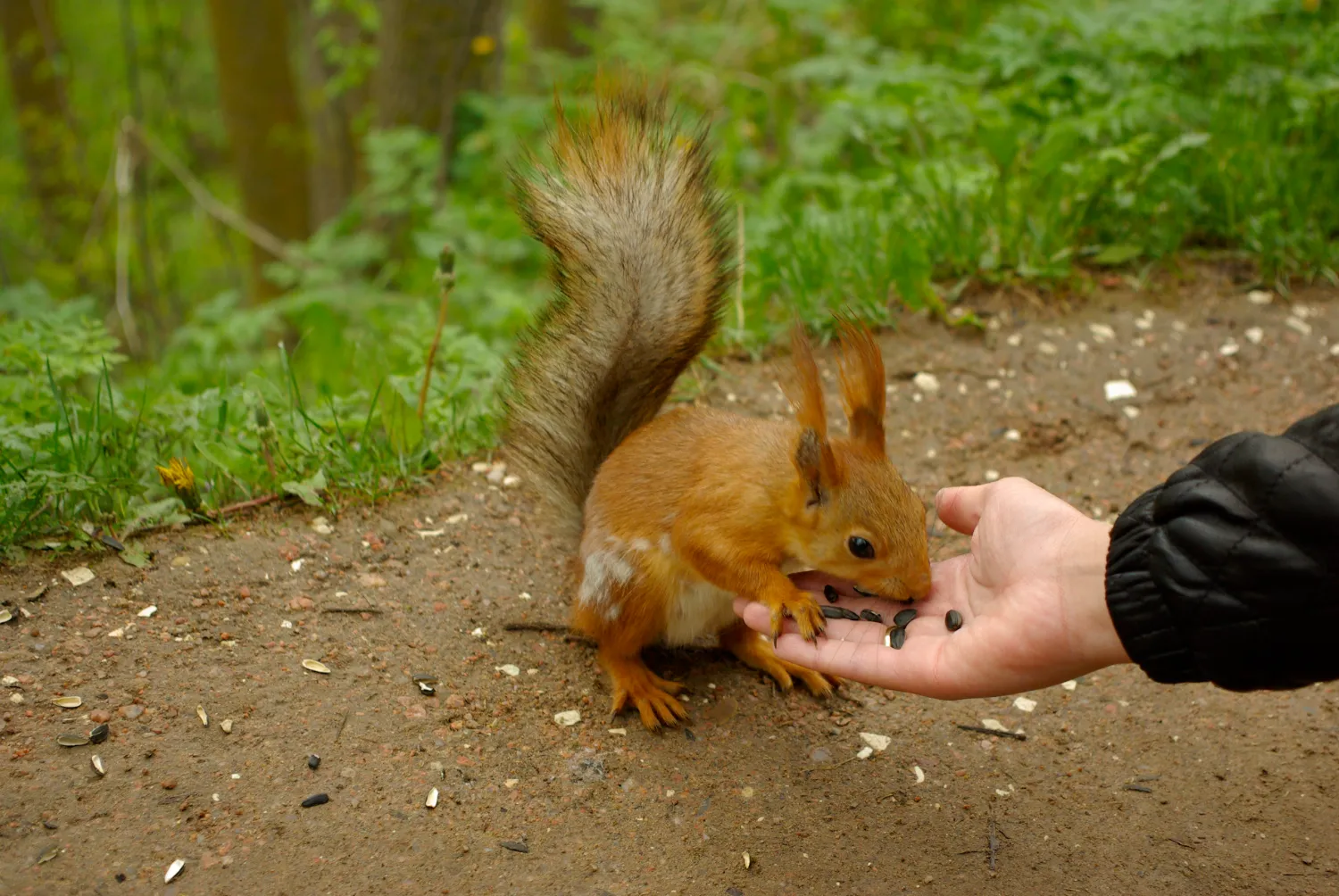
Habitat Impact: Squirrel Diets and Ecosystem Dynamics
Squirrels, through their foraging activities, play a pivotal role in shaping the environment they inhabit. Their diet not only sustains them but also contributes to the ecosystem’s vitality.
Seed Dispersal:
By foraging and burying seeds, squirrels inadvertently aid in the dispersion of plant species, promoting biodiversity.
Predator-Prey Dynamics:
Squirrels form a crucial link in the food chain, serving as prey for numerous predators while also acting as predators to smaller organisms.
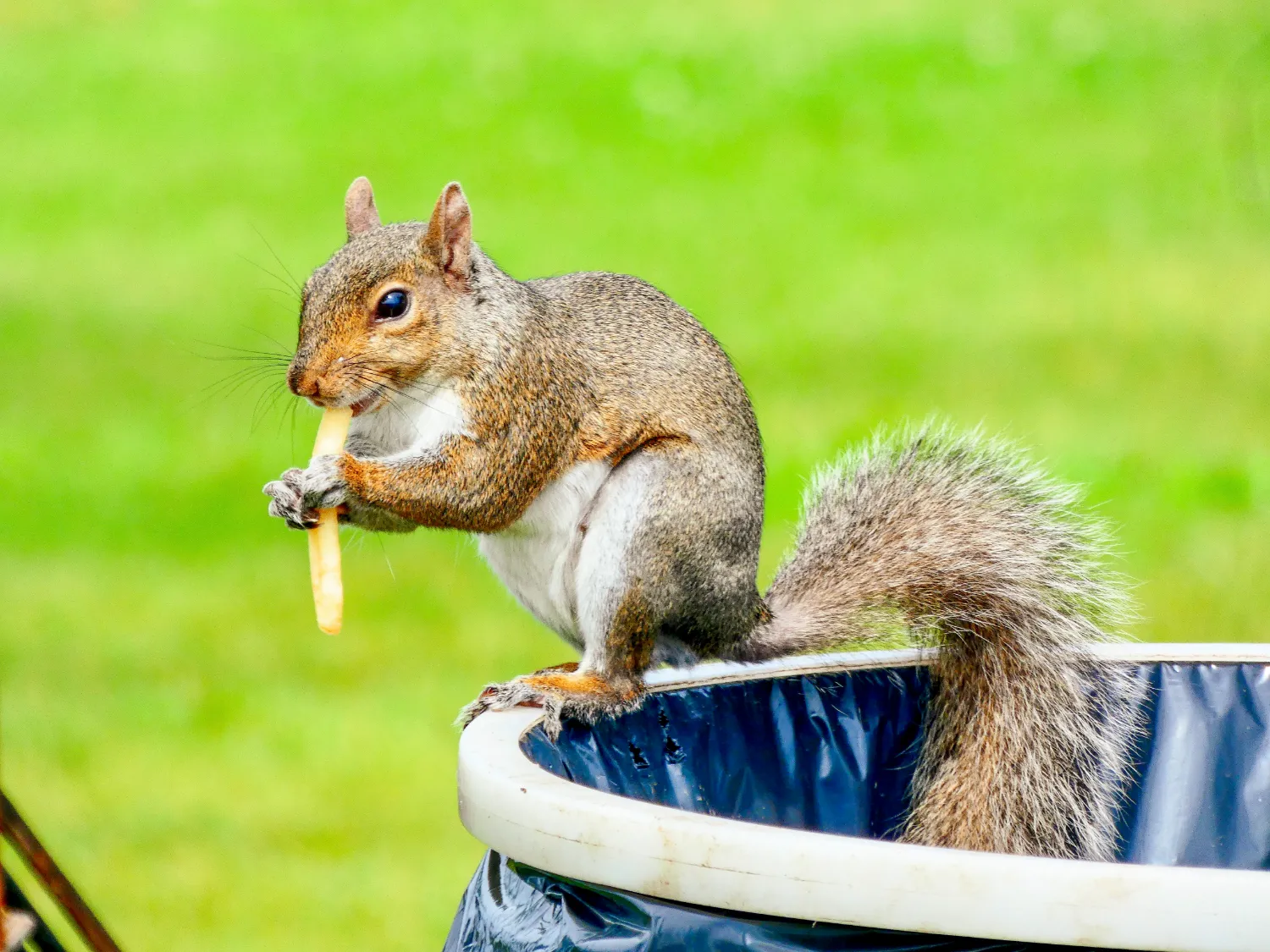
Nutritional Balance: A Closer Look at Squirrel Dietary Needs
The nutritional balance in a squirrel’s diet is quintessential for their health and vigor. Understanding this balance offers a glimpse into their dietary preferences and the innate wisdom of nature in providing for its creatures.
Protein and Fat Intake:
Essential for energy and sustenance, especially during winter.
Vitamins and Minerals:
Acquired from a variety of food sources, ensuring a balanced diet.
Frequently Asked Questions
Do squirrels eat meat?
While primarily herbivorous, squirrels exhibit omnivorous tendencies, consuming small insects, bird eggs, and occasionally small mammals when other food sources are scarce.
How do squirrels adapt their diet to different seasons?
Squirrels exhibit a remarkable ability to adapt their diet according to seasonal changes, ensuring their survival during harsh conditions, particularly in winter when food sources are limited.
What impact does human interaction have on squirrel diets?
Supplementary feeding by humans can alter squirrel diets, sometimes leading to over-reliance on human-provided food and disruption of natural foraging behaviors.

